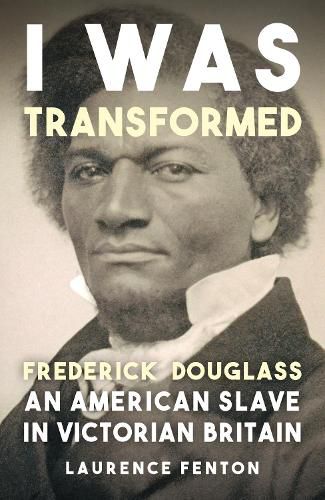Readings Newsletter
Become a Readings Member to make your shopping experience even easier.
Sign in or sign up for free!
You’re not far away from qualifying for FREE standard shipping within Australia
You’ve qualified for FREE standard shipping within Australia
The cart is loading…






In the summer of 1845, Frederick Douglass, the young runaway slave catapulted to fame by his incendiary autobiography, Narrative of the Life of Frederick Douglass, an American Slave, arrived in Liverpool for the start of a near-two-year tour of Britain and Ireland he always called one of the most transformative periods of his life. Laurence Fenton draws on a wide array of sources from both sides of the Atlantic and combines a unique insight into the early years of one of the great figures of the nineteenth-century world with rich profiles of the enormous personalities at the heart of the transatlantic anti-slavery movement. This vivid portrait of life in Victorian Britain is the first to fully explore the 'liberating sojourn' that ended with Douglass gaining his freedom - paid for by British supporters - before returning to America as a celebrity and icon of international standing. It also follows his later life, through the American Civil War and afterwards.
Douglass has been described as 'the most influential African American of the nineteenth century'. He spoke and wrote on behalf of a variety of reform causes: women's rights, temperance, peace, land reform, free public education and the abolition of capital punishment. But he devoted most of his time, immense talent and boundless energy to ending slavery. On 14 April 1876, Douglass would deliver the keynote speech at the unveiling of the Emancipation Memorial in Washington's Lincoln Park.
$9.00 standard shipping within Australia
FREE standard shipping within Australia for orders over $100.00
Express & International shipping calculated at checkout
In the summer of 1845, Frederick Douglass, the young runaway slave catapulted to fame by his incendiary autobiography, Narrative of the Life of Frederick Douglass, an American Slave, arrived in Liverpool for the start of a near-two-year tour of Britain and Ireland he always called one of the most transformative periods of his life. Laurence Fenton draws on a wide array of sources from both sides of the Atlantic and combines a unique insight into the early years of one of the great figures of the nineteenth-century world with rich profiles of the enormous personalities at the heart of the transatlantic anti-slavery movement. This vivid portrait of life in Victorian Britain is the first to fully explore the 'liberating sojourn' that ended with Douglass gaining his freedom - paid for by British supporters - before returning to America as a celebrity and icon of international standing. It also follows his later life, through the American Civil War and afterwards.
Douglass has been described as 'the most influential African American of the nineteenth century'. He spoke and wrote on behalf of a variety of reform causes: women's rights, temperance, peace, land reform, free public education and the abolition of capital punishment. But he devoted most of his time, immense talent and boundless energy to ending slavery. On 14 April 1876, Douglass would deliver the keynote speech at the unveiling of the Emancipation Memorial in Washington's Lincoln Park.